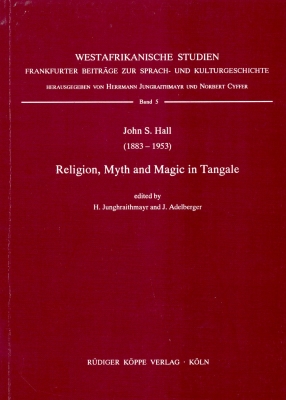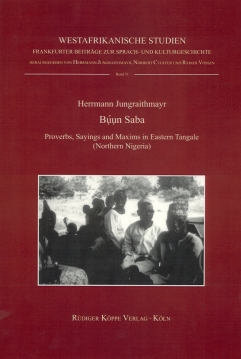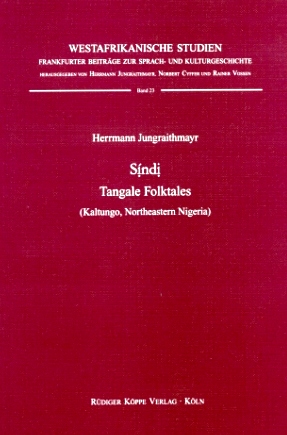




The present monograph is the careful edition of an unpublished manuscript by the missionary Rev. John Stevenson Hall (1883–1953) on the religion of the Tangale and related topics. Hall worked with the Tangale, an ethnic group in Bauchi State in north-eastern Nigeria, between 1917 and 1933. He was very interested in linguistics and ethnographics, and his heritage included detailed records of his informants' reports.
This study represents a rich source of information on the history, religion, rites, belief, and the general world-view of an ethnic group. It is also a documentation of a spiritual world which is being increasingly superseded.
In the same series a proverb collection with analyses and an anthology of Tangale folktalkes have been published, see the links below.
You will find the table of contents of this edition at the bottom of this page, as well as the complete review article from Anthropos 90.1995:
The German editors have done a quite important service both to ethnologists and to the Tangale people because the materials Father Hall collected long ago are firsthand ones, relating the religious beliefs and attitudes of an African people living in the traditional way. The volume is centred on religion but the diligent reader will note very useful even if brief expositions on social and economic organisation, on the Tangales’ Weltanschauung [...], on village’s life, traditional medicine and its practitioners, and chiefly on witchcraft, a dominant belief and fear of the single as well as the community. [...]
I find the editors and the author’s daughters decided for the best leaving the manuscript as near to the original as it was possible: in this way we have in front of us a very important chapter of a native African culture before the big changes of the following half-century.
Ernesta Cerulli in Anthropos, 90/1995, 608
© 2026 by Rüdiger Köppe Verlag – www.koeppe.de